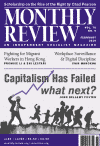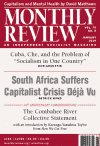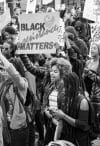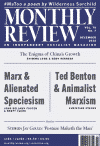United States

Your Socialism Depends on It
Revolting Prostitutes reminds readers that this struggle is at once bigger than any one sex worker’s immediate needs, but also must be precisely driven by these day-to-day needs. While this might at first seem contradictory, the book emphasizes how the collective workforce is constituted by individual workers with varied experiences, all of which are unique and valid. Narrative matters and, with Revolting Prostitutes, we are gifted one shaped by nuanced, considerate, care-informed members of the impacted working community. | more…

Why would an American girl-child, born into a good, Irish-Catholic family in the thick of the McCarthy era—a girl who, when she came of age, entered a convent—morph into an atheist, feminist, and Marxist? The answer is in Helena Sheehan’s fascinating account of her journey from her 1940s and 1950s beginnings, into the turbulent 1960s, when the Vietnam War, black power, and women’s liberation rocked her bedrock assumptions and prompted a volley of life-upending questions—questions shared by millions of young people of her generation. But, for Helena Sheehan, the increasingly radicalized answers deepened through the following decades. | more…

The circumstances that impelled Victor Grossman, a U.S. Army draftee stationed in Europe, to flee a military prison sentence were the icy pressures of the McCarthy Era. Grossman—a.k.a. Steve Wechsler, a committed leftist since his years at Harvard and, briefly, as a factory worker—left his barracks in Bavaria one August day in 1952, and, in a panic, swam across the Danube River from the Austrian U.S. Zone to the Soviet Zone. Fate—i.e., the Soviets—landed him in East Germany, officially the German Democratic Republic. There he remained, observer and participant, husband and father, as he watched the rise and successes, the travails, and the eventual demise of the GDR socialist experiment. | more…

Climatologist James Hansen’s 2018 “Climate Change in a Nutshell: The Gathering Storm,” known as the Nutshell document, is the single most important analysis currently available for general readers seeking to stay abreast of the science and politics of global warming. Nevertheless, denial of the extent of the conflict between capitalism and the climate remains pervasive. Such views were subjected to a strong refutation by Enno Schröder and Servaas Storm in a November 2018 paper entitled “Economic Growth and Carbon Emissions: The Road to ‘Hothouse Earth’ Is Paved With Good Intentions.” | more…

Liberal Historians and the Retreat from Class
While the explosion of studies on the rise of the right has undoubtedly enriched our understanding of these powerful forces and individuals, we are due for critical assessments of these studies from the left. Over the past few decades, dismissals of class-based interpretations of history have plagued this type of scholarship. Expressed by some of the profession’s most institutionally privileged members, such dismissals have led to a narrowing of discussions and debates by limiting studies to the tensions between liberals and conservatives and by downplaying or ignoring leftist critiques of liberalism. | more…

In this issue we commemorate the fortieth anniversary of the publishing of the definitive version of The Combahee River Collective Statement in Zillah Eisenstein, ed., Capitalist Patriarchy and the Case for Socialist Feminism. We are also extremely pleased to announce Monthly Review Press author Kohei Saito has won the prestigious Deutscher prize for 2018 for his Karl Marx’s Ecosocialism: Capital, Nature, and the Unfinished Critique of Political Economy. There is no doubt that this book constitutes one of the great works of Marxian theory in our time. | more…

This reprint of Keeanga-Yamahtta Taylor’s introduction to How We Get Free—Black Feminism and the Combahee River Collective serves as an introduction to both the Combahee River Collective and their seminal statement on black feminism. | more…

The most general statement of our politics at the present time would be that we are actively committed to struggling against racial, sexual, heterosexual, and class oppression and see as our particular task the development of integrated analysis and practice based upon the fact that the major systems of oppression are interlocking. The synthesis of these oppressions creates the conditions of our lives. | more…

Most people in the United States have been trained to recognize fascism in movements such as Germany’s Third Reich or Italy’s National Fascist Party, where charismatic demagogues manipulate incensed, vengeful masses. We rarely think of fascism as linked to the essence of monopoly-finance capitalism, operating under the guise of American free-enterprise. But, as Michael Joseph Roberto argues, this is exactly where fascism’s embryonic forms began gestating in the United States, during the so-called prosperous 1920s and the Great Depression of the following decade. | more…

With the dramatic rise of eco-Marxism in recent years, a corresponding revolution has been taking place in studies of the human-nonhuman animal relationship. Previous critical analyses with respect to the position of animals in human society have been largely dictated by animal-rights discourse, more recently represented by figures such as Peter Singer. Many of these analyses contend that Karl Marx, Marxism, and historical materialism understand the human-nonhuman animal relationship through a dualist, “speciesist,” or human-centric, framework—a critique most famously championed by pioneering ecosocialist Ted Benton. This issue is dedicated to analyzing the theoretical propositions underlying Marx’s analysis and to demonstrate the antispeciesist and antidualist aspects of his evolutionary-materialist understanding. | more…

An original poem by award-winning writer Wilderness Sarchild. | more…

“Mythologies,” writes veteran human rights lawyer Michael Tigar, “are structures of words and images that portray people, institutions, and events in ways that mask an underlying reality.” For instance, the “Justice Department” appears, by its very nature and practice, to appropriate “justice” as the exclusive property of the federal government. In his brilliantly acerbic collection of essays, Tigar reveals, deconstructs, and eviscerates mythologies surrounding the U.S. criminal justice system, racism, free expression, workers’ rights, and international human rights. | more…











